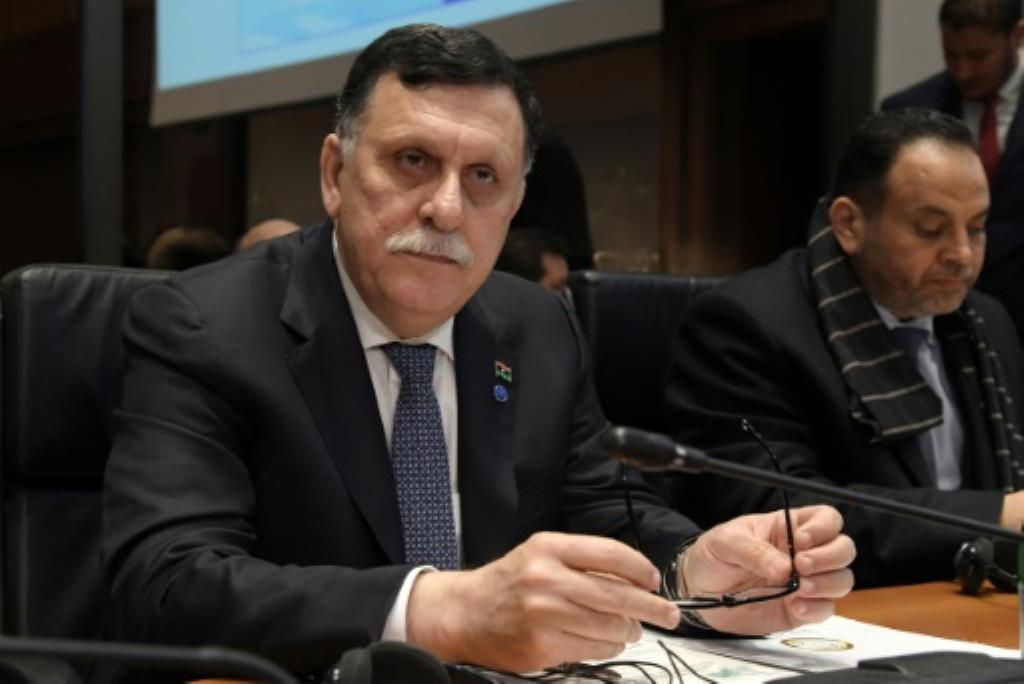Cairo- Fayez al-Sarraj, the head of Libya’s Government of National Accord (GNA) backed by the United Nations, has denied that an agreement has been struck with Rome to deploy Italian vessels in Libyan waters to combat human trafficking.
Tripoli and Rome had agreed to “complete its (Italy’s) support program for (Libya’s) coastguard through training and armament to allow it to save migrants’ lives and to confront the criminal (trafficking) gangs”, the GNA said in a statement.
Sarraj “denies having asked Italy to send naval vessels into Libya’s territorial waters… or fighter planes into Libyan airspace,” it said.
“Such allegations… are without any foundation,” Sarraj was quoted as saying in the statement. “Libya’s national sovereignty is a red line that nobody must cross.”
Italy’s Prime Minister Paolo Gentiloni said on Thursday that a government plan to deploy vessels in Libyan territorial waters would be presented to parliament in Rome next week.
The cabinet was “discussing the details” of a request from Tripoli for assistance, he said.
His statement came as the European Union has announced 46 million euros ($53 million) in funding to help boost Libya’s border and coast guards, as part of moves to stem the flow of migrants leaving the country’s shores heading for Europe.
The UN Security Council also welcomed this week’s meeting of the rival Libyan leaders and urged all Libyans to support a negotiated political solution, national reconciliation and an immediate ceasefire.
French President Emmanuel Marcron hosted a meeting Tuesday at which Sarraj and military leader Gen. Khalifa Haftar committed themselves to a ceasefire.
They also agreed to work toward presidential and parliamentary elections and to find a roadmap for securing their lawless country against terrorism and trafficking.
The Security Council underscored the importance of the UN’s central role in facilitating a Libyan-led political dialogue and welcomed new UN envoy Ghassan Salame.
It said in a statement that it looks forward “to supporting his efforts to facilitate a political solution in Libya.”
In their 10-point joint declaration, Sarraj and Haftar also agreed to work on unifying national institutions such as the National Oil Corporation (NOC) and the central bank.
Salame on Friday lauded the efforts exerted by NOC chairman Mustafa Sanalla.
Sanalla and tens of thousands of administrative staff, engineers and Libyan oil workers have worked to quadruple production in a couple of months despite all the challenges, Salame tweeted.
